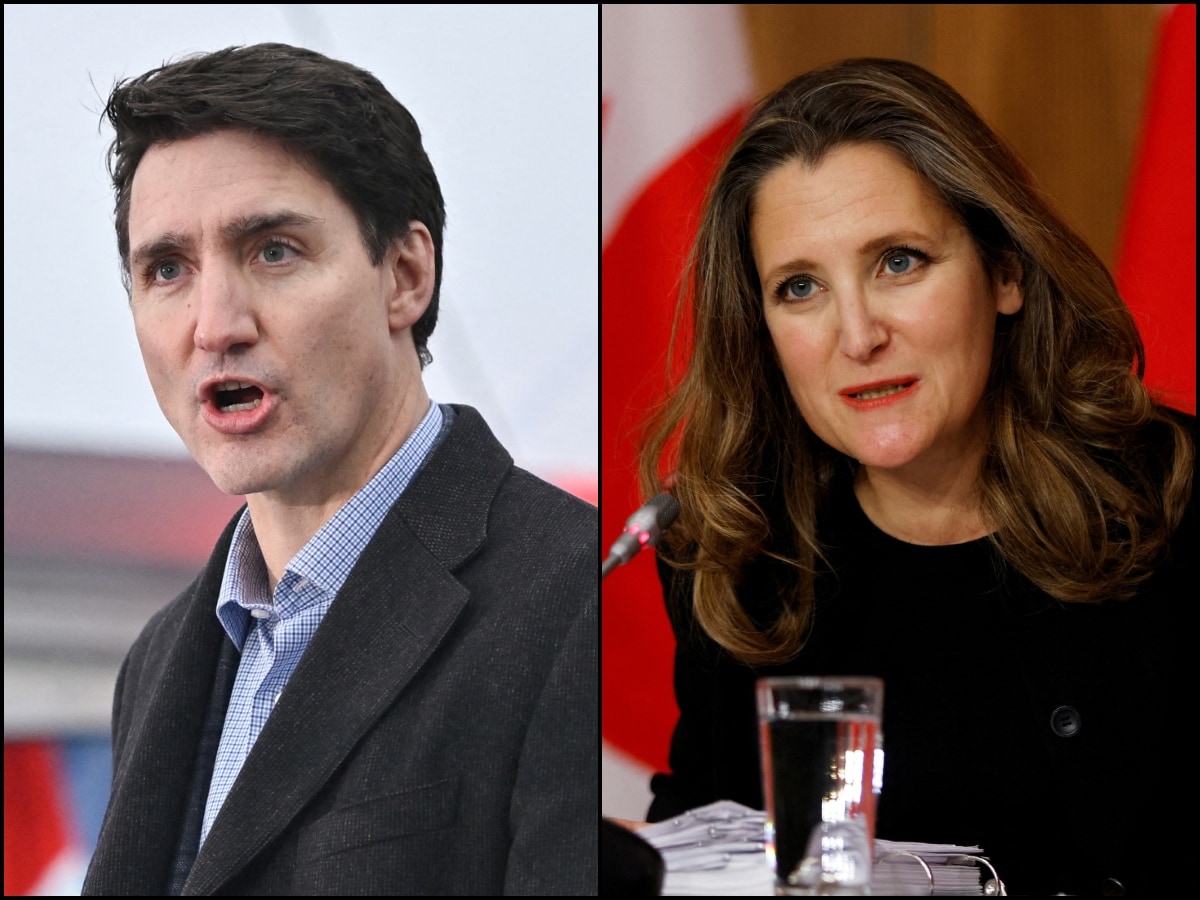 |
|
The resignation of Canadian Deputy Prime Minister and Finance Minister Chrystia Freeland has sent shockwaves through the Canadian political landscape, marking a significant setback for Prime Minister Justin Trudeau. Freeland, long considered one of Trudeau's closest allies and most powerful cabinet ministers, cited irreconcilable differences in policy as the reason for her departure. Her resignation letter, publicly shared on X (formerly Twitter), revealed a growing rift between her and the Prime Minister over the direction of the Canadian government’s economic policies, particularly concerning a proposed government package including substantial tax breaks and new spending measures. This package, estimated at $6.28 billion, included tax breaks on toys, alcohol, and food, along with a $250 rebate for working people earning $150,000 or less. Freeland's sharp criticism of these measures as “costly political gimmicks” highlights a deeper ideological split within the ruling Liberal party.
The proposed economic measures were met with internal resistance within the Finance Department, with officials expressing concerns about the fiscal prudence of the plan. Sources within the department, as reported by The Globe and Mail, viewed the proposed GST holiday as economically unsound. These concerns aligned with Freeland's own stated commitment to keeping the fiscal deficit below $40.1 billion, a goal that seemed increasingly unattainable given the rising inflation and cost of living challenges facing Canada. This conflict underscores the challenges faced by the Trudeau government as it navigates a complex economic climate, further exacerbated by external threats such as US President-elect Donald Trump's potential imposition of tariffs. Freeland explicitly warned against the dangers of costly economic measures that undermine Canada's fiscal stability during a time of economic uncertainty and external threats. Her departure highlights a growing tension between the pursuit of short-term political gains and the need for fiscally responsible governance.
Freeland's resignation is a significant blow to Trudeau's government, coming at a time when his approval ratings are already declining. Her departure leaves a significant void in the cabinet, as she held a crucial position overseeing Canada's economic strategy. The timing is particularly sensitive, coinciding with the government’s planned release of its economic statement. The search for her successor is expected to be a high-stakes process, with considerable pressure on Trudeau to choose a candidate who can both reassure the markets and maintain stability within the government. Mark Carney, the former governor of the Bank of Canada, has been mentioned as a possible successor, although he would first need to secure a seat in the House of Commons. This sudden vacancy in a key leadership role adds further pressure on the already embattled Prime Minister, particularly given the looming economic challenges and the need for strong leadership to navigate the complexities of international trade relations.
The resignation also highlights the internal divisions within Trudeau's government. While Freeland's departure may be seen as a result of policy disagreements, it also underscores the challenges inherent in balancing political expediency with sound economic management. Her decision to resign, rather than accepting another cabinet position offered by Trudeau, suggests a deep-seated disagreement that couldn't be easily resolved. This public display of dissent adds to the perception of internal disunity within the Liberal party, potentially impacting public confidence in the government's ability to address pressing national issues. The immediate consequences of Freeland’s departure remain to be seen, but the event is undeniably significant and will likely have far-reaching implications for Canada's political and economic future. The upcoming economic statement will be a crucial test for the government’s ability to effectively respond to the challenges outlined by Freeland, while managing the uncertainty caused by her abrupt departure from such a crucial cabinet role.
The unexpected resignation of Housing Minister Sean Fraser on the same day as Freeland further underscores the potential for wider internal turmoil within the government. While Fraser expressed respect and friendship for Freeland, his own simultaneous resignation suggests a possible domino effect, hinting at a climate of dissatisfaction within Trudeau’s cabinet. The sheer coincidence of two significant ministerial resignations within the same day raises serious questions about the stability and effectiveness of the current government. The coming weeks will be crucial in determining how Trudeau addresses the crisis and manages the fallout, as the country prepares for potentially significant economic challenges and uncertainty on the international stage. The ability of Trudeau to regain public confidence and stability in his government will largely depend on the strategic decisions made in the wake of these surprising resignations.
Source: 'Costly Political Gimmicks': Big Setback For Trudeau As His Deputy PM Freeland Resigns
